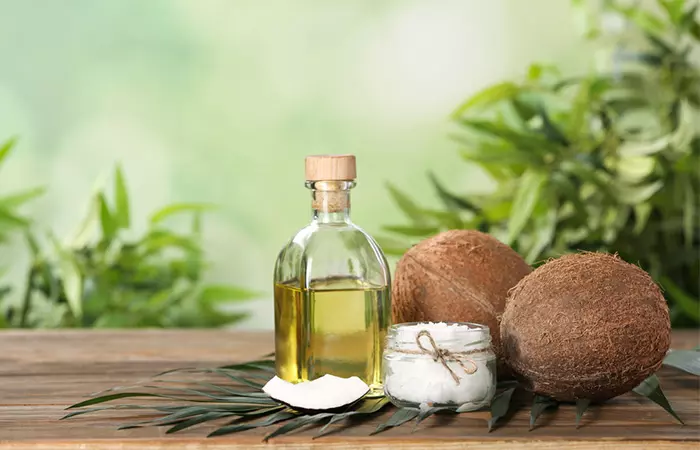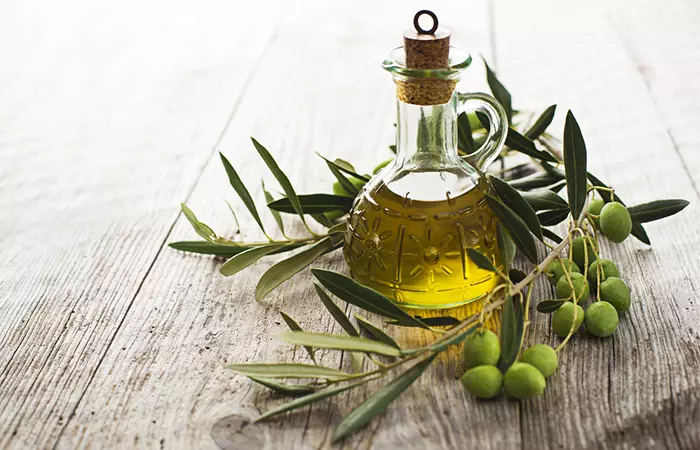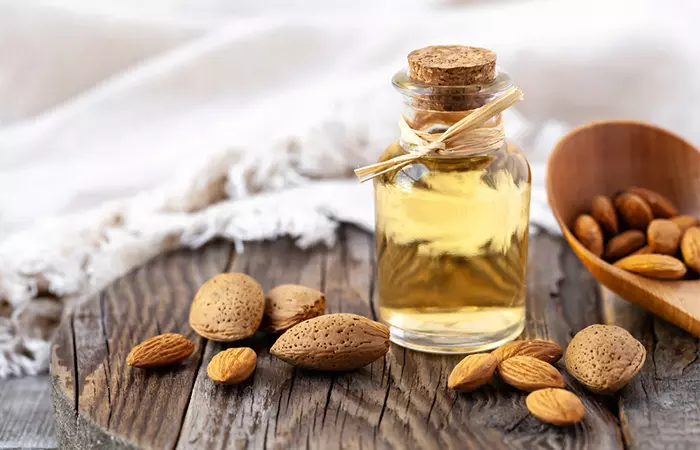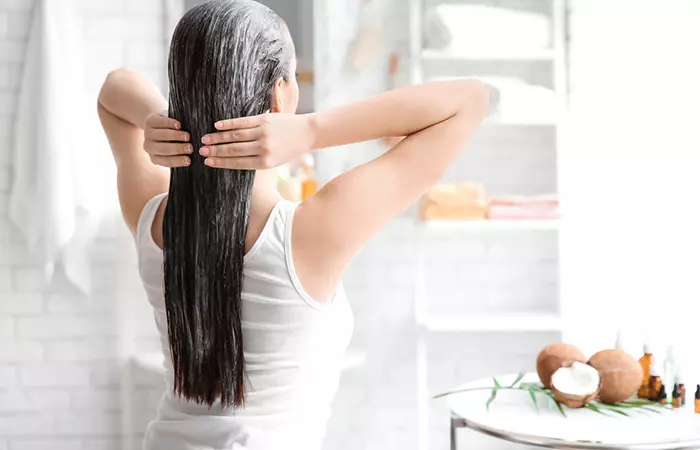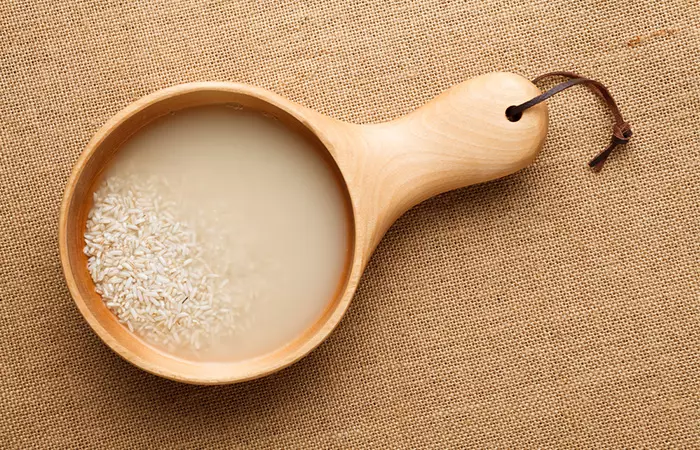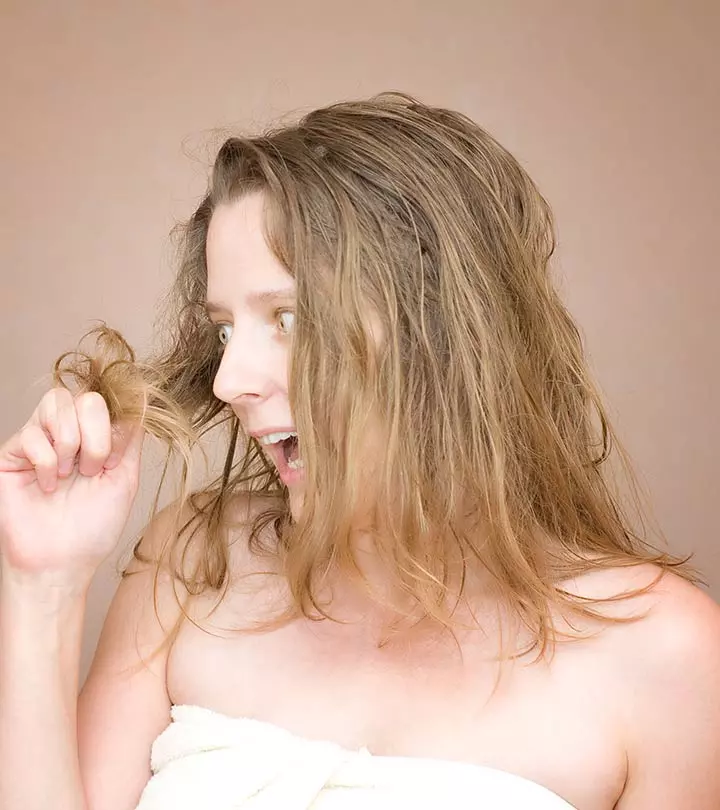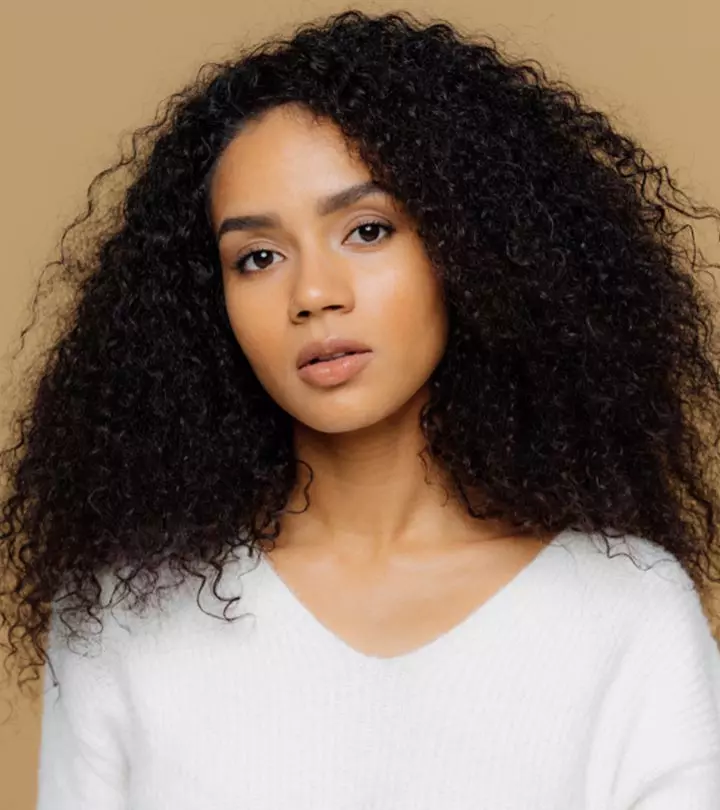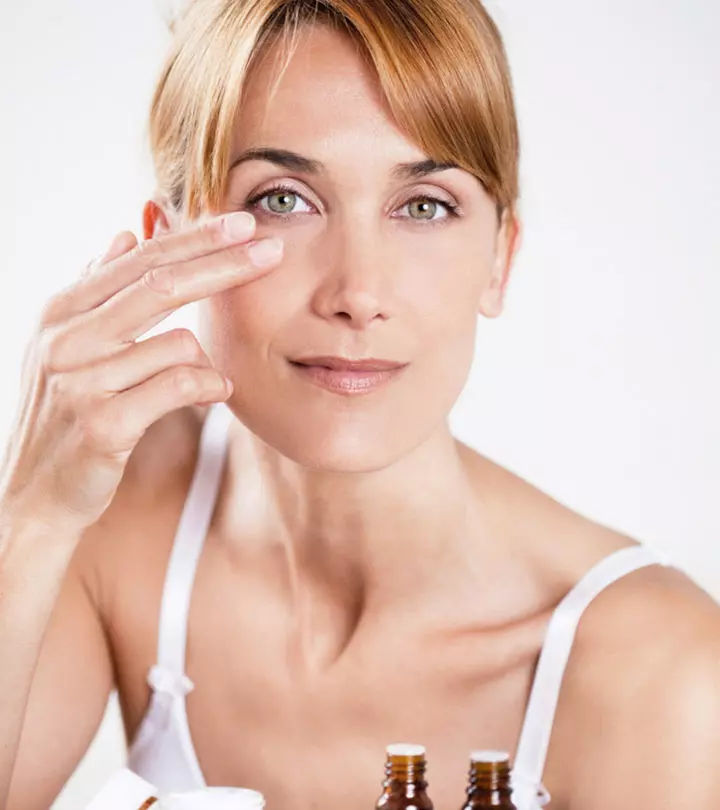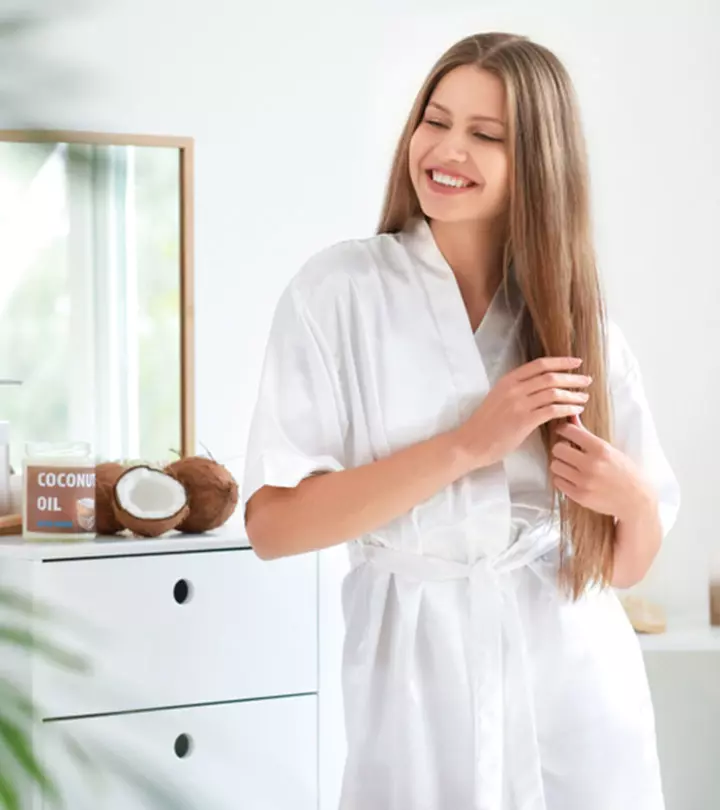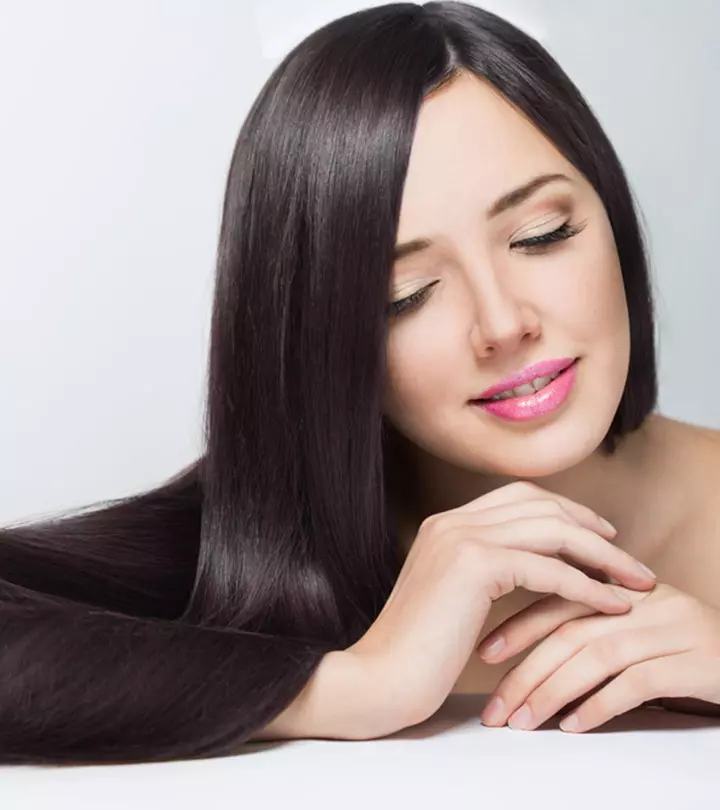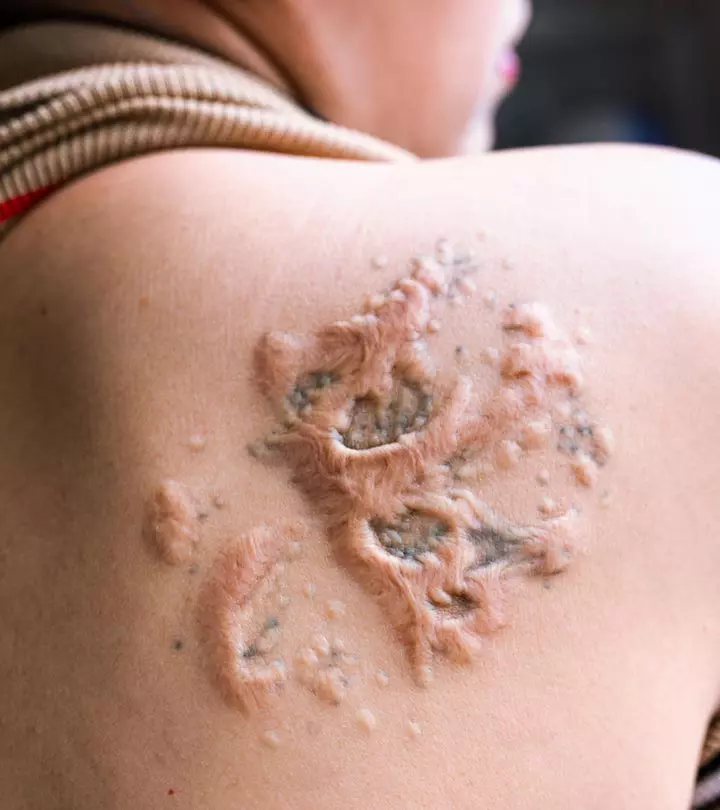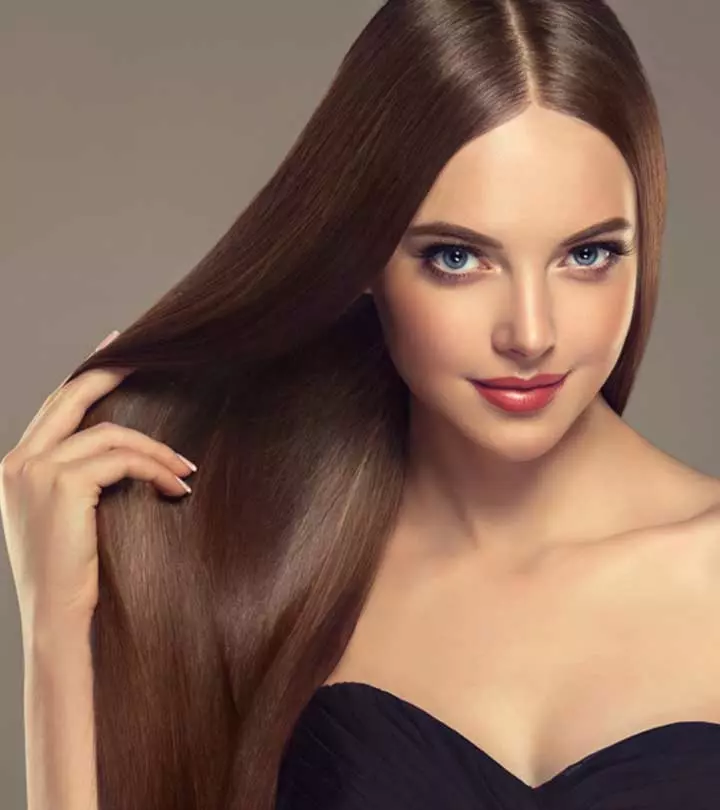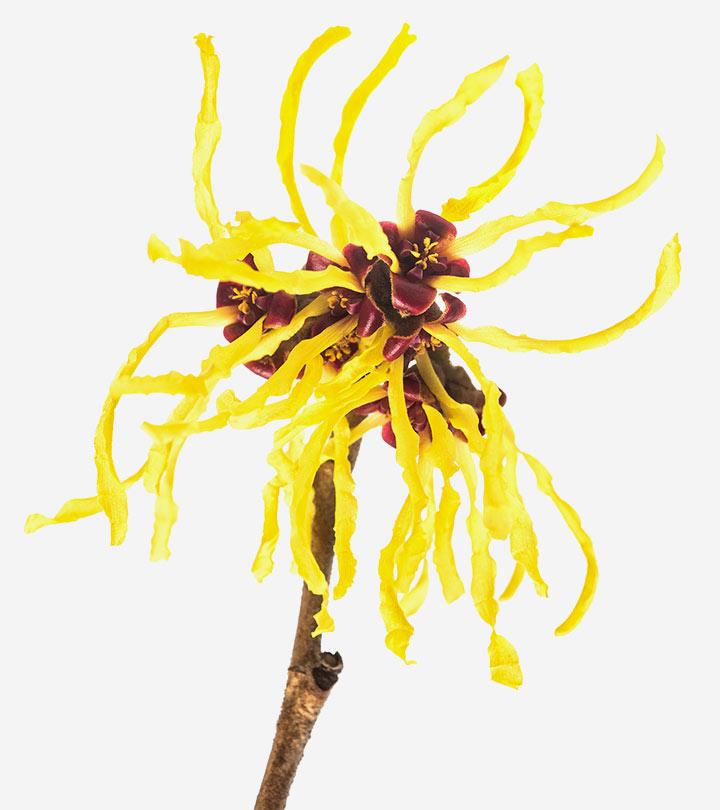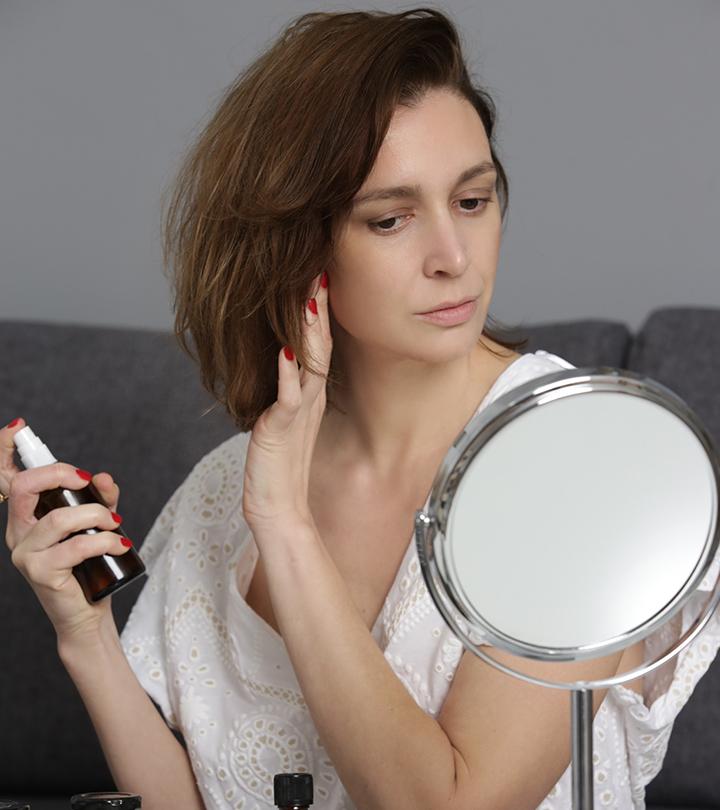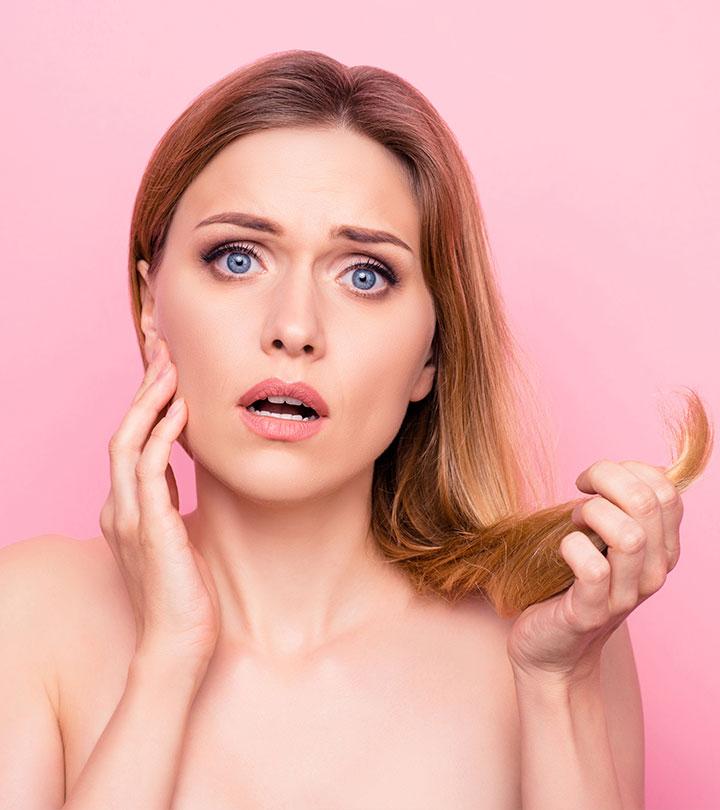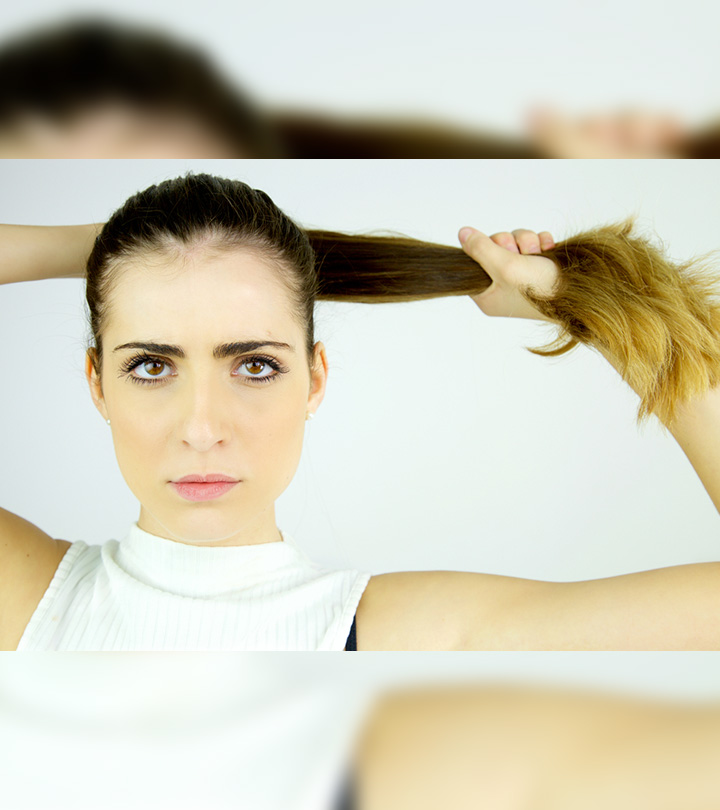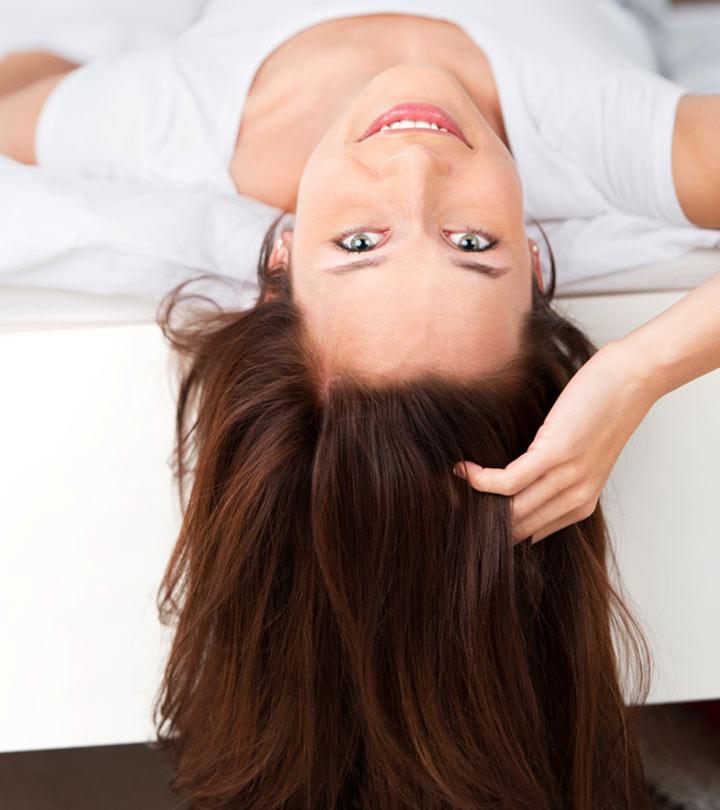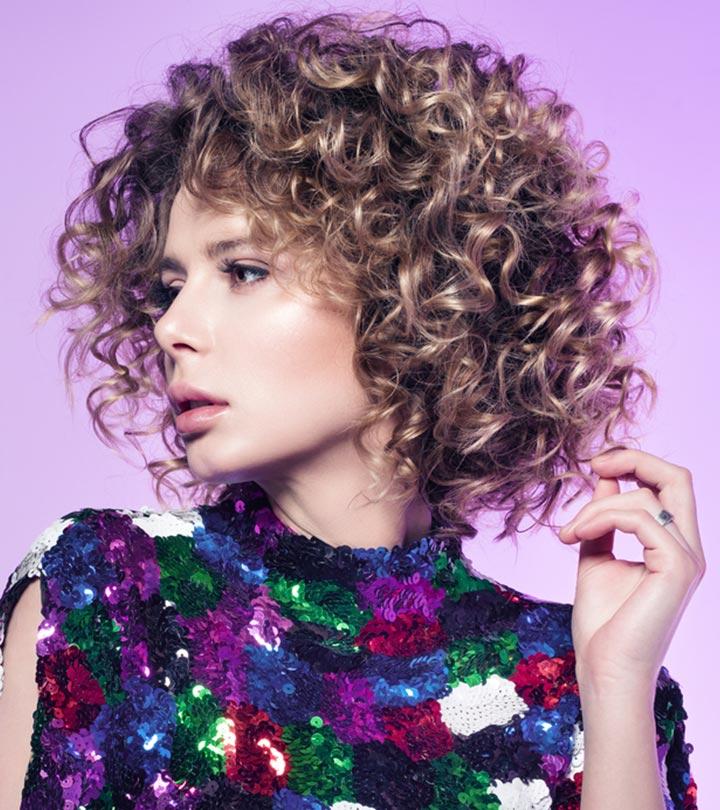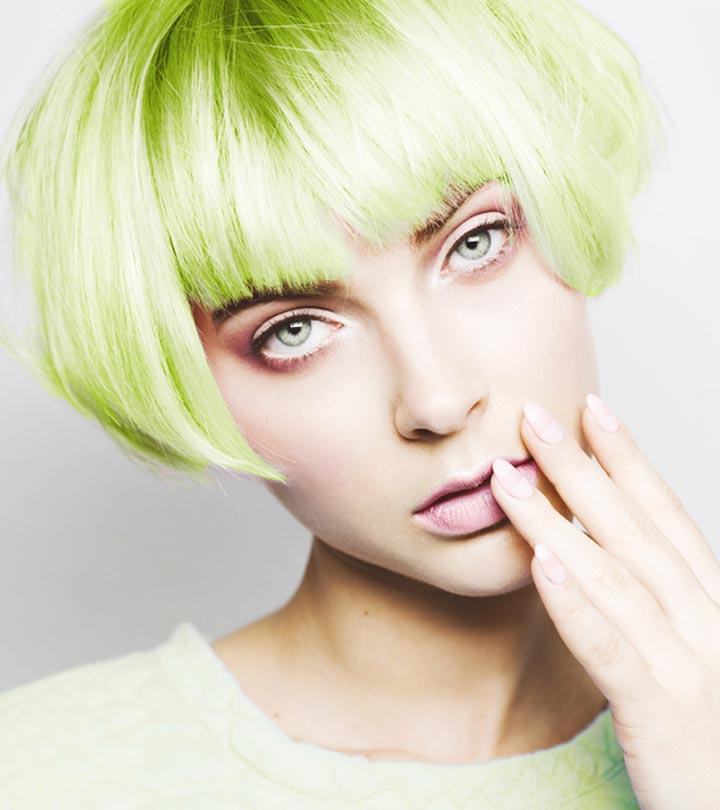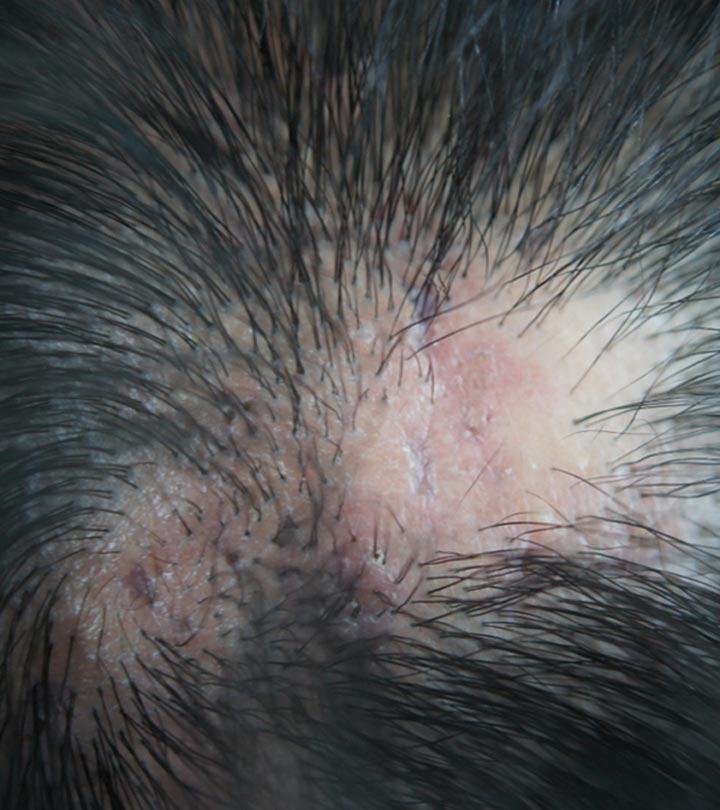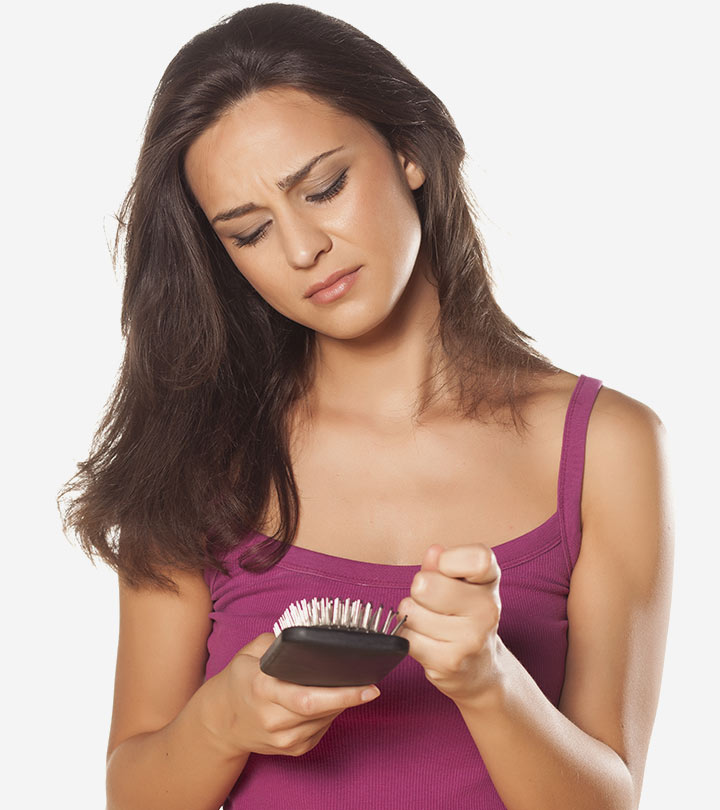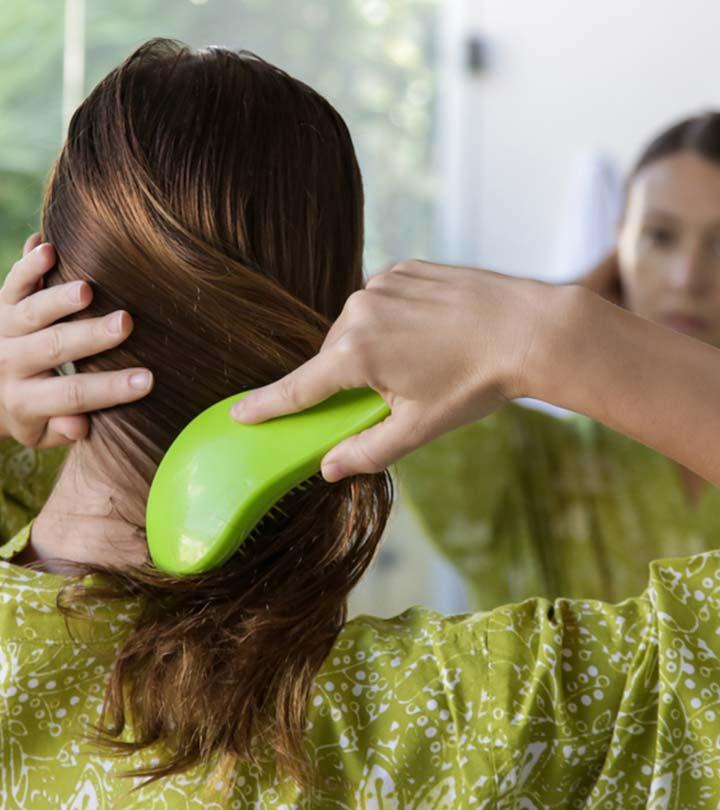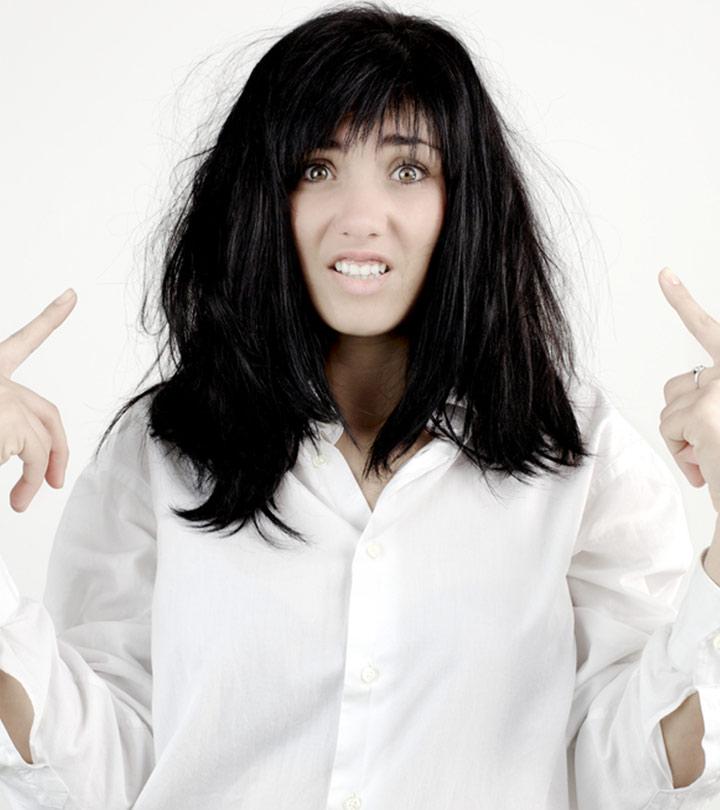How To Hydrate Hair After Bleaching: The Ultimate Guide
These aftercare measures ensure that your hair recovers from the damage caused by bleaching.
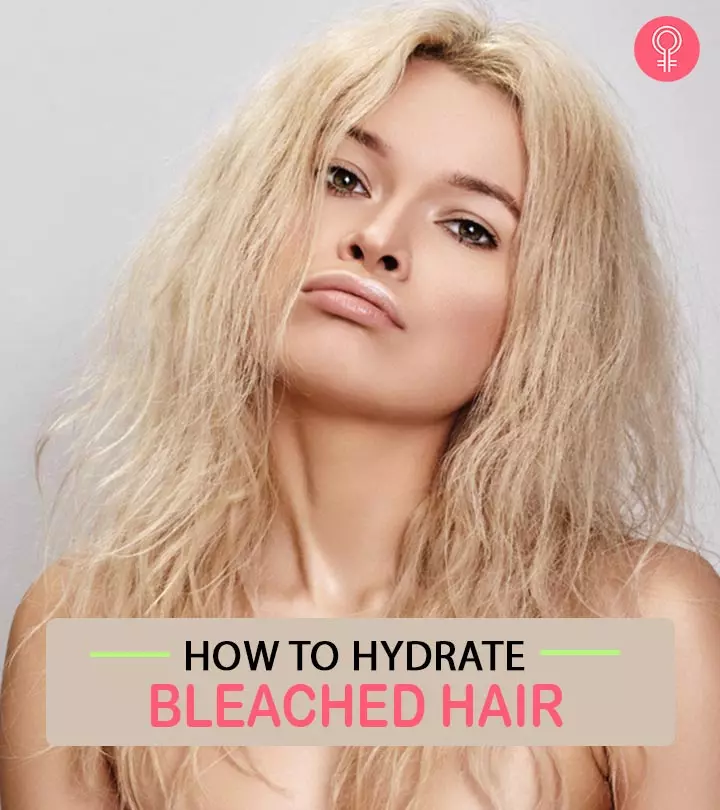
Image: StyleCraze
You bleached your hair, and now it is dry, damaged, and lifeless. Are you wondering how you can fix your locks? What you need to do is simply hydrate hair after bleaching it. Bleaching agents are harsh and damage your hair from within. These agents penetrate your hair cuticles and weaken them. As a result, your hair loses its color, strength, shine, and elasticity. But worry not – discover here how to repair, protect, and hydrate bleached hair.
In This Article
What Does Bleach Do To The Hair?
Bleaching agents can damage the hair in the following ways:
- They make the hair dry and lifeless and cause protein and cysteine loss in hair fibers (1), (2).
- They reduce the hair’s brightness, softness, and manageability (3).
- The chemicals like ammonium hydroxide and hydrogen peroxide in bleaching products open up the hair fibers, causing inter-fiber friction (4).
- Bleaching also damages the hair cell membrane complex and endocuticle (inner layer of the cuticle) (4).
- Bleaching weakens the bonds in the hair, affecting its structural integrity (5). This makes your hair prone to further damage during combing and similar grooming processes. It also increases hair porosity.
A blogger talked about her personal experience of bleaching hair and how it affected her strands. She recounts, “I don’t think I realized how horribly damaged my hair was until later that day when I was washing out the conditioner (i).” She further shares, “There were large chunks of my hair that had broken off two inches from the scalp.”
If you have recently bleached your hair, there is no need to panic. There are ways you can repair the damage. Scroll down to know more.
Tips To Hydrate And Repair Hair After Bleaching
- Hydrate Hair: Right after bleaching, the hair feels dry and flat. Hydrating the hair with natural oils replenishes and repairs it and prevents internal swelling and breakage. Here are a few oils that you can apply post-bleaching:
- Coconut Oil: Coconut oil penetrates the hair fibers and fortifies the hair from within. It also protects the hair from UV damage (6). A study showed that coconut oil could reduce protein loss in bleached hair. Using coconut oil as a pre-wash regimen before bleaching can reduce inter-fiber swelling (7). Moreover, coconut oil acts as a protein shield, reduces hair loss, and promotes hair growth (8).
- Argan Oil: Argan oil can reduce protein loss by minimizing cuticle swelling and chipping (3). It also prevents hair loss and reduces dryness as it is rich in tocopherols, squalene, and oleic acidi An anti-inflammatory monounsaturated acid that lowers cholesterol and prevents heart disease. and has antioxidant properties (9), (10). Argan oil can also help treat skin and scalp issues like eczemai A chronic and autoimmune disorder that results in dry, itchy, and swollen skin during flare-ups. and psoriasisi An autoimmune disease that causes the buildup of skin cells, leading to scaly patches and inflamed rashes on the scalp, knees and elbows. .
- Olive Oil: Olive oil contains monounsaturated fatty acidsi A type of healthy fat found in plant foods like avocados, nuts and vegetable oils that helps improve blood cholesterol levels. , tocopherols, carotenoidsi A group of naturally occurring pigments that give many plants their yellow, orange, and red hues. , and squalene and has antioxidant properties that can hydrate the hair and prevent damage (11). It also decreases hair breakage and improves shine. A study also found that consuming olive oil might prevent hair loss by inhibiting 5-alpha reductase, an enzyme that produces DHT, an androgen causing hair loss (12) (13).
- Almond Oil: Almond oil is rich in oleic and linoleic acid and is an excellent hair tonic and lotion (14). Traditionally, almond extracts have shown to promote hair growth and have anti-inflammatory properties that may soothe an irritated scalp (15).
- Avoid Chemicals: Avoid using chemicals on your bleached hair. Steer clear of hair products, especially shampoos, that may contain parabens, added fragrances, and formaldehyde. These chemicals may further damage fragile hair. Using hair care products of lower pH levels, ideally below 6, keeps the hair fibers closed (16). Mild pH products also improve hair shine and health.
 Quick Tip
Quick Tip- Sun Protection: UV rays can cause structural damage to the hair fibers and damage the hair protein (keratin) and cause hair pigment degradation (17). Hence, make sure to cover your hair and protect it from UV exposure while stepping out.
- Use DIY Protein Masks: You can use a DIY egg hair mask to replenish your hair’s protein content. Research shows that egg yolk can stimulate hair growth (18). Mix the yolk of an egg with half a cup of aloe vera extract and apply it to your hair. You may also add a tablespoon of any nourishing hair oil like olive or coconut oil to the mask.
- Use Hydrating DIY Hair Masks: Condition and nourish your hair with natural hair masks. Use ingredients like banana and mayonnaise to replenish and repair the hair. Banana and mayonnaise are said to help repair damaged hair. A study shows that vegetable protein from hair masks improves hair smoothness and strength and repairs damaged hair (19).
- Try Rice Water Rinse: Rice water has been a hair care and skin care staple in Japan for decades. It reduces hair surface friction and improves hair elasticity (20). Rice water contains inositol that penetrates the hair shafts and improves the overall health of your hair (21).
- Use Natural Conditioners: Most conditioners contain concentrated levels of chemicals. Instead, use leave-in or natural ingredients like:
- Jojoba Oil: Jojoba oil is a natural wax ester that is similar to sebum. It is often used to nourish dry scalps. Jojoba oil helps unclog pores, remove excess sebum from the scalp, and restore hair health. It has anti-inflammatory properties that can soothe scalp inflammation in cases of eczemai A chronic disease that causes inflammation, itchiness and rashes on the scalp and skin, thereby weakening the skin barrier and is common among young children. , psoriasis, and dandruff.
- Avocado: Avocado is one of the best natural conditioners for dry and damaged hair. It contains omega-3 fatty acids and essential amino acids that coat the hair fibers to seal in moisture and improve texture. Avocado is rich in biotin that can stimulate hair growth.
- Yogurt: Yogurt is another moisturizing and protecting natural hair care ingredient. It contains probiotic bacteria that improve hair density and extend the anagen phasei The active phase of the hair growth cycle that lasts about 3-6 years, where the hair strands increase in length by about one centimeter. . Yogurt also improves scalp health, reduces hair damage, regulates sebum production, and maintains the scalp pH.
- Avoid Heat Styling: Stop using styling tools like curlers and straighteners on bleached hair. Heat can further damage and darken bleached hair.
- Choose The Right Brush: Do not use regular hair brushes on bleached hair. Avoid frequent combing if you have straight or wavy hair. Research shows that combing wet hair can stretch it, causing breakage (4). Use a wide-toothed comb or a wet hair brush on damp hair and detangle knots in sections. Be gentle when brushing hair.
- Use Keratin-Rich Products: Our hair is mostly made up of a protective protein called keratin. Use hair care products with hydrolyzed keratin proteins to prevent protein loss and help repair and restore bleached hair.
- Avoid Swimming: The water in swimming pools contains chlorine that may cause hair color changes and leave the hair dry and irritated (22).
- Massage The Scalp: Massaging the scalp can increase hair thickness (23). It improves blood circulation to the scalp, which stimulates hair growth (24). Massage your hair with oil for a week after bleaching hair. You can then massage your hair with warm oil regularly to improve hair health.
- Scalp Cleansing: Before using shampoos to cleanse bleached hair, opt for natural remedies to cleanse and protect the scalp.
- Rosemary Oil: A study showed that rosemary oil could reduce dandruff (25). This oil can also help stimulate hair growth and unclog pores (26), (27). It has anti-inflammatory properties that can help soothe inflamed and irritated scalp and improve alopeciai A common autoimmune disease that causes patchy hair loss from the scalp, face and other areas due to the immune system attacking the hair follicles. .
- Onion Juice: Onion juice helps improve hair growth in people with alopecia (28). It enhances hair appearance and also prevents hair loss and scabies (14).
- Peppermint Oil: A study showed that peppermint oil could stimulate hair growth without any adverse reactions (29). It has antibacterial, antiseptic, and antifungal properties that protect, cleanse, and soothe the scalp.
- Witch Hazel: Witch hazel can be used to treat a sensitive, inflamed, or burned scalp (30). It contains tocopherols that have high antioxidant properties (31). It also has anti-inflammatory and antiviral properties and prevents hair color oxidation.
- Use Aloe Vera: Aloe vera is one of the best natural hair care remedies. It has anti-inflammatory properties that soothe the scalp and prevent irritation, redness, burning, and bruising. It moisturizes the hair, repairs damaged scalp cells, and stimulates hair growth by improving blood circulation. Aloe vera also has antifungal properties that prevent scalp infections.
- Do Not Use Hair Ties: Avoid using hair accessories like elastic ties and tight clips that can pull on the hair and cause breakage and damage. Also, do not style your hair in tight or intricate hairstyles to avoid tangling or pulling.
- Air Dry The Hair: Allow your hair to air dry instead of using a blow dryer. After a shower, pat your hair dry with a soft towel without rubbing. You can also scrunch your hair with the towel and allow it to air dry.
- Regular Maintenance Before Bleaching: Before bleaching your hair, follow these tips to prevent severe damage like breakage, heavy hair fall, scalp irritation, and inflammation:
- Use Custom Blends: Opt for shampoos and conditioners that you can customize to suit your hair care needs. Brands like SkinKraft develop customized hair care products catering to your needs. Hair bleaching can cause dryness and hair fall. Choosing products that answer all your hair needs without stripping the hair or worsening the damage is crucial for recovery.
- Pre-Bleaching Care: Pre-wash your hair with coconut oil before bleaching. This prevents inter-fiber friction and protein loss. You can also check with a professional stylist for the right hair care products for pre-bleach hair care. These products contain ingredients that coat the hair and prevent severe damage.
- Choose The Right Products: If you frequently bleach and color your hair, use hair care products specially developed for color-treated hair. You can find umpteen products that treat bleached hair and prevent it from losing its texture and softness.
- Trim Hair Regularly: While this step might not seem important, it is a very beneficial hair care tip. Bleaching your hair will leave the ends dry and lifeless. Trimming your hair gets rid of split ends.
 Quick Tip
Quick TipInfographic: Important Tips To Rehydrate And Repair Bleached Hair
Bleaching agents can damage your hair and cause breakage as they penetrate the hair shafts, dehydrate them, and trigger loss of protein and cysteine from the hair fibers. They also lessen hair radiance, suppleness, and manageability. However, if you have recently bleached your hair, worry not – as there are certain ways you can rehydrate and repair it. Check out the infographic below to know more. Illustration: StyleCraze Design Team
Bleaching agents are used to lighten your natural hair color. Since they penetrate the hair shafts, they leave your hair vulnerable to damage like dryness and breakage. This is why it cannot be stressed enough how important it is to hydrate hair after bleaching it. Try different hair treatments, preferably natural treatments with nutrient-rich oils like coconut, almond, or olive oil. Following a few additional tips, such as avoiding chemicals and applying hair packs, can preserve your hair health. Also, consider using natural conditioners like avocado that make your hair smooth and shiny, providing ample hair hydration. Avoid heat styling tools to promote hair health as they cause heat damage to your hair. After you bleach your tresses, if you feel scalp inflammation, burning, hair loss, or breakage, you should consult a doctor immediately.
Frequently Asked Questions
How long does hair take to recover from bleach?
It may take a month for your hair to completely recover from the effects of bleaching.
Does bleached hair need protein or moisture?
It needs both. Bleaching agents penetrate your hair strands, drying out your tresses and leaving them weak. Protein and moisturization can improve and repair hair.
What happens if you use purple shampoo right after bleaching?
Using purple shampoo right after bleaching your hair can close the hair cuticles. This makes it difficult for toner to enter the cuticles, which makes it hard to neutralize the brassy tones.
How long does it take to rehydrate hair?
This depends on your hair type, hair issues, and if you follow a hair care routine. Extremely dry hair may take weeks to completely rehydrate.
Is hot oil good for bleached hair?
Yes, hot oil can be good for moisturizing bleached hair. However, just make sure the oil is warm and not scalding hot to avoid burning your scalp.
Is castor oil good for bleached hair?
Yes, castor oil has emollienti Skin care ingredients that moisturize and soften the skin while reducing itchiness and flaking. properties that can moisturize bleach hair.
Does conditioner hydrate the hair?
Yes, conditioners contain moisturizing ingredients that can hydrate the hair from within.
Key Takeaways
- Bleached hair may seem dry, dull, and dehydrated and in need of that extra TLC to retain the shine and texture.
- Natural oils and hydrating hair masks can help you revive the oil and moisture balance of your hair.
- Avoiding sun exposure and heat styling can help prevent damage, wear, and tear of bleached hair.
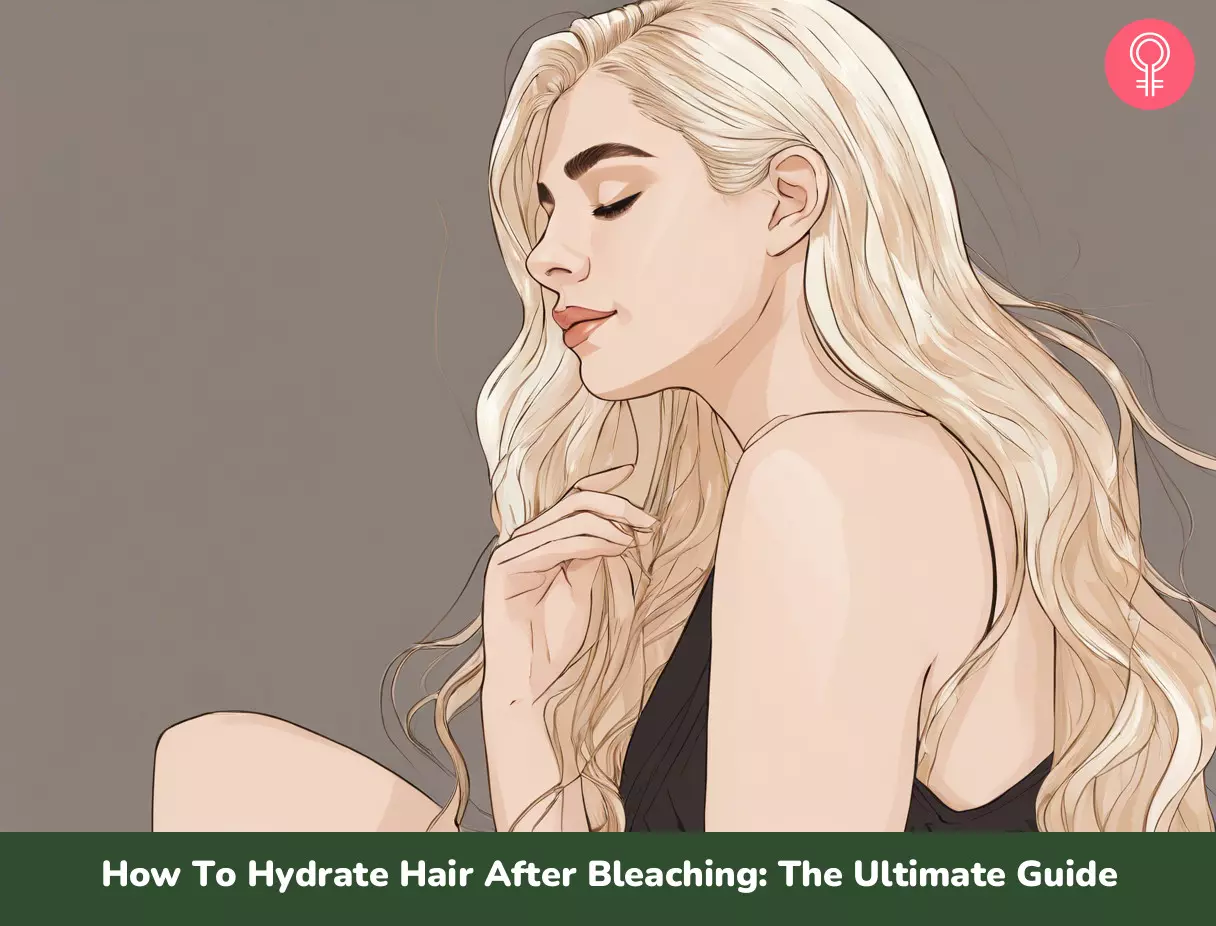
Image: Stable Diffusion/StyleCraze Design Team
Nurture your bleached and colored hair with utmost care. Dive into this comprehensive video guide that unveils the secrets of a proper hair care routine for vibrant, healthy, and beautiful locks.
Personal Experience: Source
StyleCraze's articles are interwoven with authentic personal narratives that provide depth and resonance to our content. Below are the sources of the personal accounts referenced in this article.
i. The Dark Side of Bleach Blonde Hairhttps://mid20chronicles.wordpress.com/2014/03/07/the-dark-side-of-bleach-blonde-hair/
References
Articles on StyleCraze are backed by verified information from peer-reviewed and academic research papers, reputed organizations, research institutions, and medical associations to ensure accuracy and relevance. Read our editorial policy to learn more.
- Protein Loss In Human Hair From Combination Straightening And Coloring Treatments
https://www.ncbi.nlm.nih.gov/pubmed/26177865 - A Study of Damaged Hair
https://www.researchgate.net/publication/265285712_A_study_of_damaged_hair - Hair Protective Effect of Argan Oil (Argania spinosa Kernel Oil) and Cupuassu Butter (Theobroma grandiflorum Seed Butter) Post Treatment with Hair Dye
https://pdfs.semanticscholar.org/7684/6379b2c3bb7699c1159736ad991d6f72df9d.pdf - Hair Cosmetics: An Overview
https://www.ncbi.nlm.nih.gov/pmc/articles/PMC4387693/ - The Hair Damage Dilemma
https://www.researchgate.net/publication/313440761_The_Hair_Damage_Dilemma - Effect of mineral oil, sunflower oil, and coconut oil on prevention of hair damage
https://pubmed.ncbi.nlm.nih.gov/12715094/ - Effect of coconut oil on prevention of hair damage.
https://www.semanticscholar.org/paper/Effect-of-coconut-oil-on-prevention-of-hair-damage.-Rele-Mohile/37f3706f326b55bfc3e2a346ac48f8f0a9755b7d - Hair Cosmetics: An Overview
https://www.ncbi.nlm.nih.gov/pmc/articles/PMC4387693/ - Hair Protective Effect of Argan Oil ( Argania spinosa Kernel Oil) and Cupuassu Butter ( Theobroma grandiflorum Seed Butter) Post Treatment with Hair Dye.
https://www.researchgate.net/publication/273687487_Hair_Protective_Effect_of_Argan_Oil_Argania_spinosa_Kernel_Oil_and_Cupuassu_Butter_Theobroma_grandiflorum_Seed_Butter_Post_Treatment_with_Hair_Dye - Recent Advances towards Validating Efficacy and Safety of African Traditional Medicines
https://www.hindawi.com/journals/ecam/2013/340107/ - Development and efficacy evaluation of hair care formulations containing vegetable oils and silicone
https://ijpni.org/Article/ijpni-114 - Inhibition of steroid 5 alpha-reductase by specific aliphatic unsaturated fatty acids
https://pubmed.ncbi.nlm.nih.gov/1637346/ - Effect of Argan and Olive Oil Consumption on the Hormonal Profile of Androgens Among Healthy Adult Moroccan Men
https://journals.sagepub.com/doi/pdf/10.1177/1934578X1300800112 - The nutritional and health benefits of almonds: a healthy food choice, https://www.researchgate.net/publication/250058086_The_nutritional_and_health_benefits_of_almonds_a_healthy_food_choice
- Almond: A Health Diamond
http://researchjournal.co.in/upload/assignments/1_147-151.pdf - The Shampoo pH can Affect the Hair: Myth or Reality?
https://www.ncbi.nlm.nih.gov/pubmed/25210332 - UV Damage Of Hair
https://www.ncbi.nlm.nih.gov/pubmed/19138021 - Naturally Occurring Hair Growth Peptide: Water-Soluble Chicken Egg Yolk Peptides Stimulate Hair Growth Through Induction of Vascular Endothelial Growth Factor Production
https://pubmed.ncbi.nlm.nih.gov/29583066/ - Effect of Various Concentration of Vegetable Protein in Hair Mask on The Hair Texture
https://ijcc.chemoprev.org/index.php/ijcc/article/view/26 - Abstracts: The effect of rinse water obtained from the washing of rice (YU‐SU‐RU) as a hair treatment
https://onlinelibrary.wiley.com/doi/abs/10.1111/j.1468-2494.2010.00605_3.x - Development of Hair-Care Products from Rice Water
http://www.spring8.or.jp/pdf/en/indu_appli/p10-11.pdf - Hair color damages caused by exposure to chlorinated water in the presence of ultraviolet radiation
https://www.researchgate.net/publication/236109930_Hair_color_damages_caused_by_exposure_to_chlorinated_water_in_the_presence_of_ultraviolet_radiation - Standardized Scalp Massage Results in Increased Hair Thickness by Inducing Stretching Forces to Dermal Papilla Cells in the Subcutaneous Tissue,
https://www.ncbi.nlm.nih.gov/pmc/articles/PMC4740347/ - Self-Assessments of Standardized Scalp Massages for Androgenic Alopecia: Survey Results
https://www.ncbi.nlm.nih.gov/pmc/articles/PMC6380978/ - To study the antidandruff activity of rosemary oil, basil oil, coleus oil over selenium sulfide
https://www.semanticscholar.org/paper/To-study-the-antidandruff-activity-of-rosemary-oil%2C-Patil-Gadekar/70242df2ea04bc5af510e6181e38d888b196101e - Rosemary oil vs minoxidil 2% for the treatment of androgenetic alopecia: a randomized comparative trial
https://pubmed.ncbi.nlm.nih.gov/25842469/ - An Evidence-Based Systematic Review of Rosemary ( Rosmarinus officinalis ) by the Natural Standard Research Collaboration
https://www.ncbi.nlm.nih.gov/pubmed/22432564 - Onion Juice (Allium cepa L.), A New Topical Treatment for Alopecia Areata
https://www.ncbi.nlm.nih.gov/pubmed/12126069 - Peppermint Oil Promotes Hair Growth without Toxic Signs
https://www.ncbi.nlm.nih.gov/pmc/articles/PMC4289931/ - North American Virginian Witch Hazel (Hamamelis virginiana): Based Scalp Care and Protection for Sensitive Scalp, Red Scalp, and Scalp Burn-Out
https://www.ncbi.nlm.nih.gov/pubmed/25210333 - Antibacterial activity and medical properties of Witch Hazel Hamamelis
https://www.journal.atmph-specialissues.org/uploads/179/8028_pdf.pdf
Read full bio of Dr. Shruti Chavan
Read full bio of Eshna Das
Read full bio of Krati Darak





